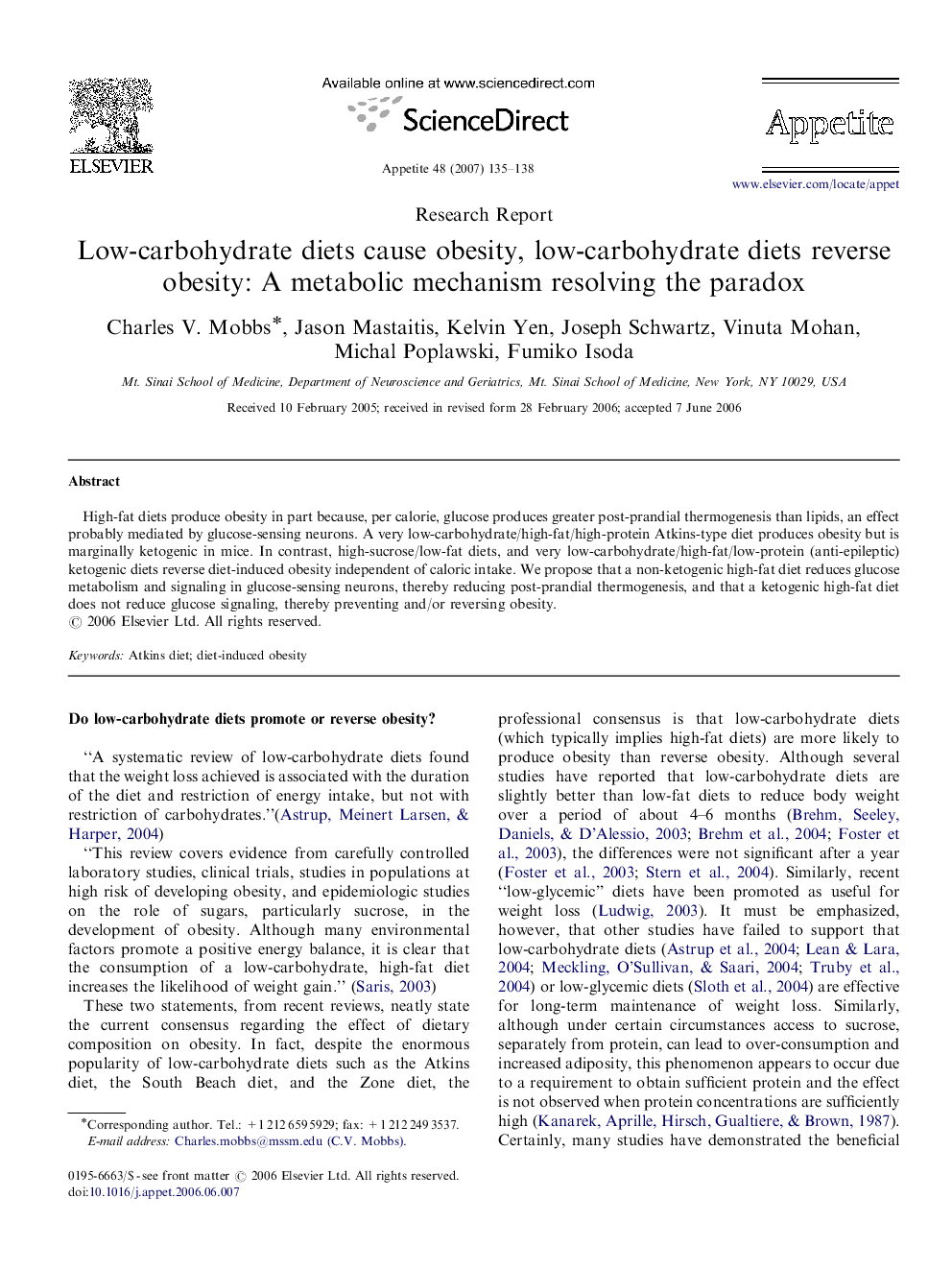| Article ID | Journal | Published Year | Pages | File Type |
|---|---|---|---|---|
| 941848 | Appetite | 2007 | 4 Pages |
High-fat diets produce obesity in part because, per calorie, glucose produces greater post-prandial thermogenesis than lipids, an effect probably mediated by glucose-sensing neurons. A very low-carbohydrate/high-fat/high-protein Atkins-type diet produces obesity but is marginally ketogenic in mice. In contrast, high-sucrose/low-fat diets, and very low-carbohydrate/high-fat/low-protein (anti-epileptic) ketogenic diets reverse diet-induced obesity independent of caloric intake. We propose that a non-ketogenic high-fat diet reduces glucose metabolism and signaling in glucose-sensing neurons, thereby reducing post-prandial thermogenesis, and that a ketogenic high-fat diet does not reduce glucose signaling, thereby preventing and/or reversing obesity.
